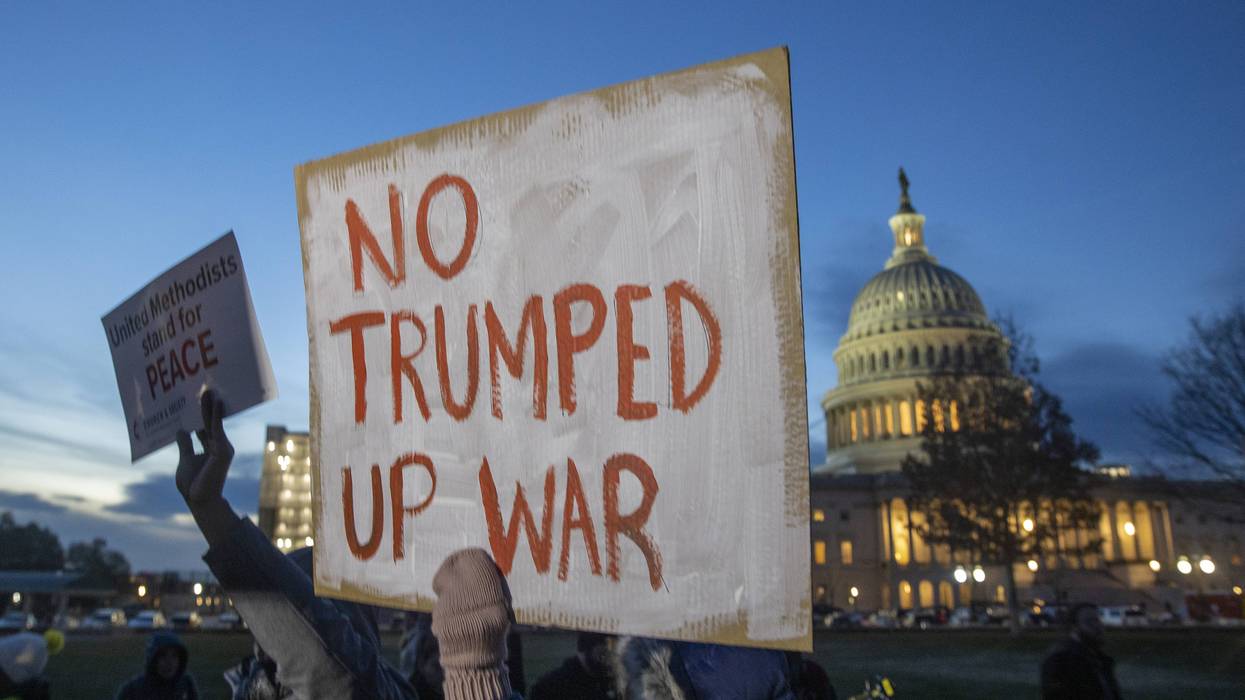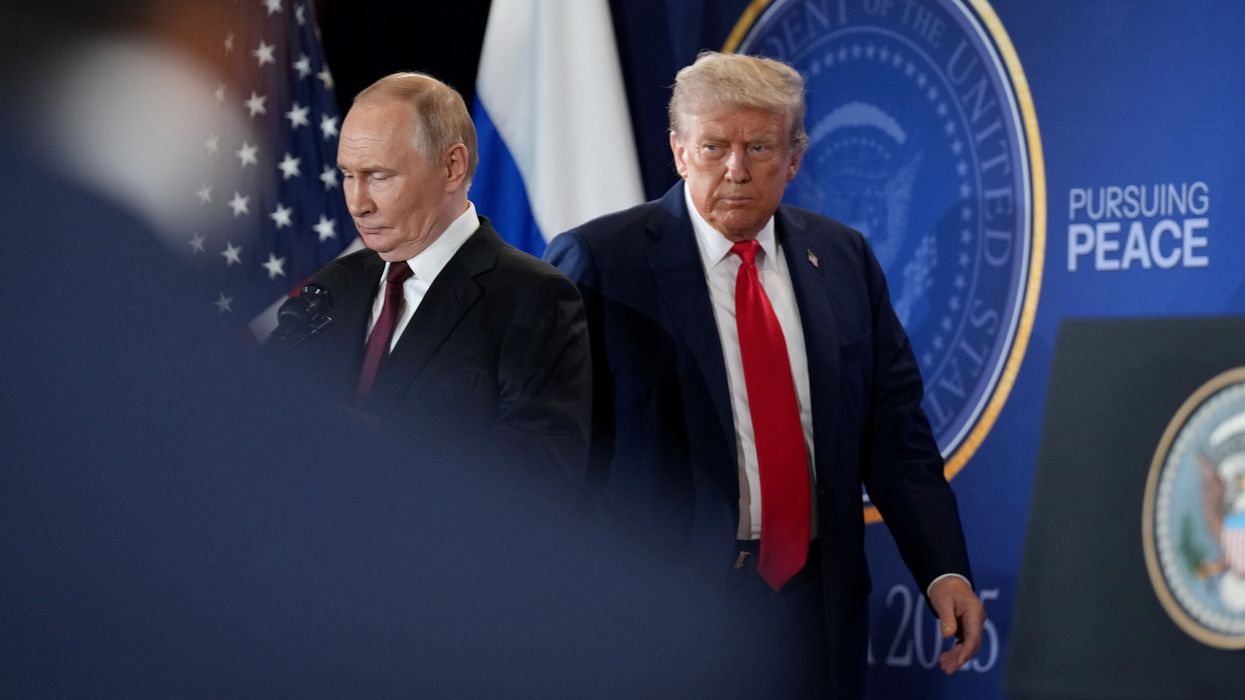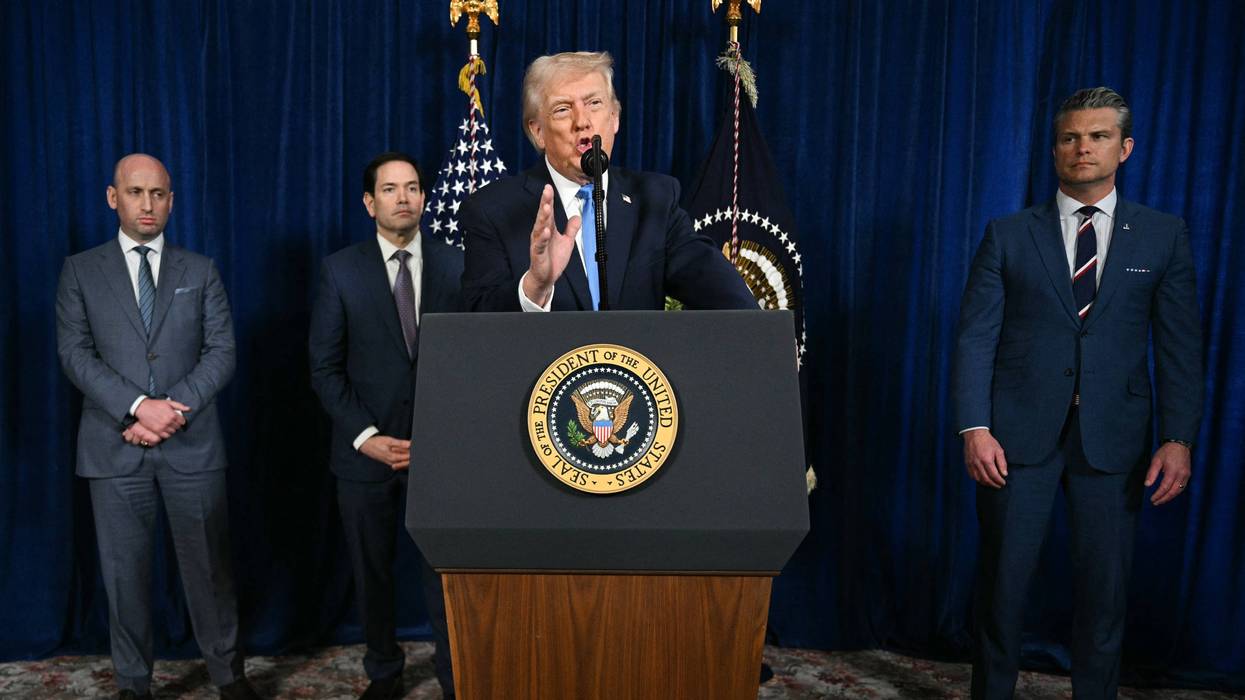Attack Iran? No! We Must Stop This Illegal Act by Trump
It’s getting late, but it’s not yet too late. No war on Iran!
President Donald Trump seems to think he is King of the World, not just the United States. Even as he convenes his “Board of Peace” (though calling it the “Board of Imperial Conquest” would be more apt) it looks like the US will soon illegally attack Iran, again, as it did last June. Congress needs to do its job representing the will of the American people, get a spine, step up to its Constitutional duty over matters of war and peace, and stop him.
The US has attacked seven countries (eight if one includes the US of A, and most people in Minneapolis and many other cities surely think so) since Trump’s recrudescence. Ongoing talks with Iran do not appear to be promising, with unrealistic US demands, especially zero nuclear energy enrichment by Tehran and the dismantling of its missile program, which would leave it vulnerable to further Israeli attacks. Trump’s "beautiful armada" including two aircraft carrier battle groups with supporting attack aircraft is the largest US military buildup in the region since the 2003 invasion of Iraq.
This massive (and expensive) deployment of forces is exactly what one does in planning for a large-scale military offensive against Iran, just as the region begins the Islamic holy month of Ramadan. This would go far beyond the more limited strikes that have taken place in the past, including last June’s attack that killed 1,000 people. “It harkens back to what I saw ahead of the 2003 Iraq war,” said retired Lt. Col. Daniel Davis, a senior fellow and military expert at Defense Priorities. “You don’t assemble this kind of power to send a message. In my view, this is what you do when you’re preparing to use it. What I see on the diplomatic front is just to try to keep things rolling until it’s time to actually launch the military operation.”
Lest anyone forget, this crisis is all of Trump's making, as he abrogated the multilateral agreement, the Joint Comprehensive Plan of Action or JCPOA, negotiated under President Barack Obama, which effectively and verifiably capped Iran's nuclear program well short of the ability to build The Bomb.
Trump should not have the last word on whether to attack Iran again. Next week, the House of Representatives will hold a vote on H. Con. Res. 38, the Iran War Powers Resolution, according to the measure's co-sponsor US Rep Ro Khanna (D-CA). US Rep Thomas Massie (R-KY) is the other lead sponsor, and the only Republican on the resolution at present, but a vote could be close, if mostly partisan. Just a few Republican votes could make the difference.
There is no news on a Senate vote at this time, though there is a companion resolution, S. J. Res 104, introduced by Senators Tim Kaine (D-Va.) and Rand Paul (R-Ky.). Should the House resolution pass, the Senate vote might ensue quickly, as time is of the essence.
In a recent Quinnipiac poll, 70% of American voters said they oppose military action against Iran. It is time for Congress to fulfill its Constitutional authority and vote to require authorization of any military action against Iran.
It is no surprise the majority of Americans oppose a war with Iran. Similarly, most Iranians oppose a military strike on their country. Now, it’s up to us to demand that Congress do its job and pull us back from the precipice of another disastrous war. Concerned individuals should call their US Representative via the Congressional switchboard at 202.224.3121, or 833-STOP-WAR
Also, on Monday at 2:30pm ET/11:30am PT, peace and constitution-loving people can join a virtual Action Hour on Zoom, where we'll mobilize together to demand Congress stop this unauthorized war before it starts.
The National Iranian American Council Action (NIAC) is organizing this event, co-sponsored by Peace Action & MPower Action, to equip you with immediate action you can take to urge lawmakers to oppose war and stand with the American and Iranian people. We will also be offering a brief "How to Advocate" 101 training to empower you to get face-to-face meetings with your lawmaker's office.
Click here to sign up and join us! us!
It’s getting late, but it’s not yet too late, to stop another illegal war of aggression.


